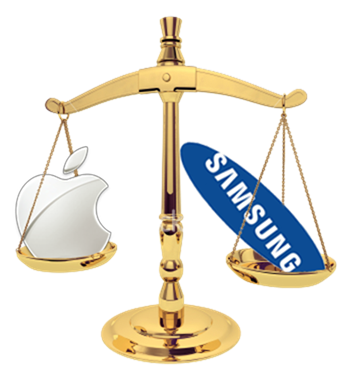Apple and Samsung have been through the courts numerous times, and although proceedings do often descend into farce with playground-like slander aimed in both directions, a UK judge has really sent Apple back to school. With the Cupertino company having dragged Samsung’s name through the mud with claims the Korean company copied the iPad design for its tablets, the British Judge has ruled Apple must publicly state that Samsung did not plagiarize the design.
The report stems courtesy of Bloomberg, and the public statements must be clearly posted via two different mediums. Firstly, the Judge has ordered Apple must post a message up on its website for a total of six months, while also posting a similar one-off message in British newspapers.
Although it’s currently unknown how Apple has reacted to the ruling, Samsung will surely be pleased to see its bitter rival humbled in this rather embarrassing fashion, while also clearing its own name.
Both companies have dealt their fair share of lawsuits to one another, although it does seem as though Apple is the main instigator of litigation. In some ways, it’s damaging for the company’s reputation to publicly slander other products as copied or fraudulent – particularly when a large portion of these products are faring better in the market. That said, the resemblance between many tablets and Apple’s iPad is certainly there, and although I don’t particularly agree with the manner in which Apple has handled some of its grievances, they aren’t wholly unfounded.
We’ll be keeping a close eye out for the message, since Apple will naturally try and keep it as low-key as possible.
This isn’t the first occasion in recent times that Apple’s web site has been a source of embarrassment; Tim Cook’s company quietly removed a claim Macs weren’t susceptible to "PC viruses," complacency which clearly came back to haunt when the Flashback malware arrived. The blogosphere didn’t miss it on that occasion, and as soon as Apple posts the statement on its web site, we’ll be sure to let you know of its contents.
Given the ruling has been made in the UK, it seems as though it will only affect the British-aimed segment of the site, so anybody using Apple.com elsewhere will not see the message.
You can follow us on Twitter, add us to your circle on Google+ or like our Facebook page to keep yourself updated on all the latest from Microsoft, Google, Apple and the web.

